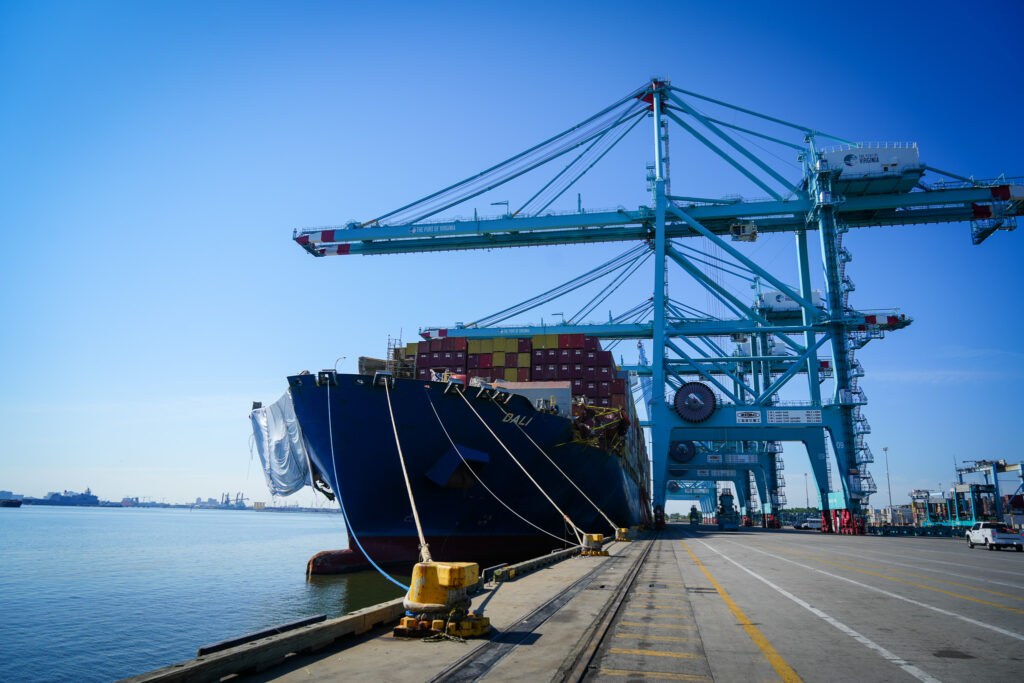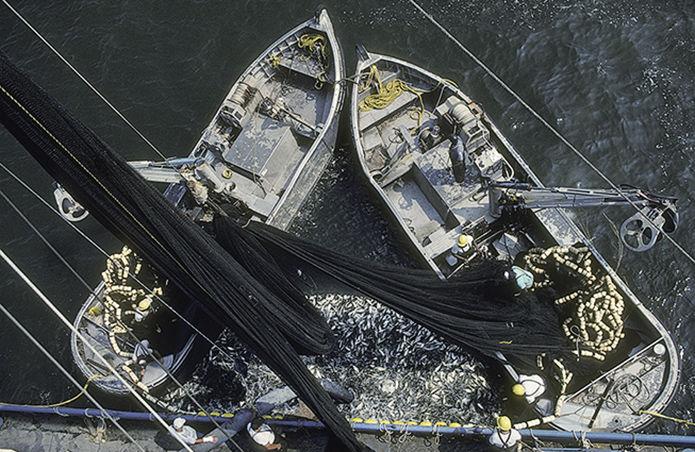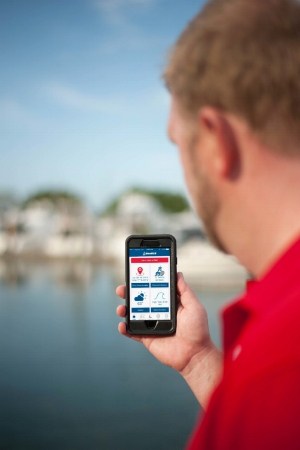It felt surreal to many to see the container ship Dali pass back through the site where the Key Bridge collapsed into mangled steel, then travel under the Bay Bridge on its way down the Bay.
But business moves forward, so M/V Dali must unload the containers that survived the crash, filled with cargo that clients have been waiting on for months. This will happen at the Port of Virginia in Norfolk.
But it will not come cheap for the owners of those containers, as the maritime law of general average dictates that everyone with cargo on board must help shoulder the cost of cargo destroyed by the impact of the Key Bridge.
The ship arrived at Virginia International Gateway early Tuesday morning. The first step was to unload about 1,700 containers, then the Dali was to be moved across the Norfolk Harbor to Pier 3 at Norfolk International Terminals. Finally, the ship will undergo repairs.
The Dali‘s owner, Grace Ocean Private Ltd., declared general average a few weeks after the Key Bridge disaster. It means that the owners of the cargo on board will have to pay significant additional costs to get their containers back. In this case, general average adjusters have determined that owners will have to pay 55 percent of the value of their cargo in order to get it back. They’ll have to post a cash bond to pick up their stuff. If an owner doesn’t post bond for their containers/cargo, the items will be auctioned off.
If it sounds unfair, that may be because general average is an ancient “law of the sea” from the 19th century. The premise is that when the ship’s owner has suffered extreme financial loss, in order to save the cargo that belongs to other people, the ship’s owner has a right to be compensated for the loss.
In this case, general average adjusters determined that the Dali was worth $90 million before the disaster and is now worth only about $43 million. As maritime law expert and Annapolis admiralty attorney Todd Lochner explains to Chesapeake Bay Magazine, adjusters also factor in the cost of salvage, which was complicated and lengthy considering that a massive part of the Key Bridge was laying across the ship’s bow for weeks.
A letter dated June 21 was sent to all agents and people receiving the goods that were aboard the Dali, notifying them that general average was set at 55%. That means, for example, that if a container owner had $1 million in cargo to retrieve from the ship, the owner would have to pay $550,000 just to get their cargo back.
It’s certainly not the first time general average has been invoked. Lochner points out, however, just how high the percentage is. For comparison, when general average was declared in the grounding of Ever Forward just outside the Patapsco River, it was only set at 8 percent.
Meanwhile, the Dali remains in Norfolk.
The Port of Virginia, along with providing an unloading point and repair yard, took on several of Baltimore’s commercial cruise departures and arrivals when cruise ships were unable to reach the Baltimore Cruise Terminal this spring.
“We were able to help out a neighbor in a time of need and did so without a second thought or an impact on our service levels,” said Stephen Edwards, CEO and Executive of the Virginia Port Authority. “Now, Mid-Atlantic trade is returning to its normal pattern and this is a positive development. The reopening of the Port of Baltimore is great news for the industry and businesses and people who rely on that key port.”




